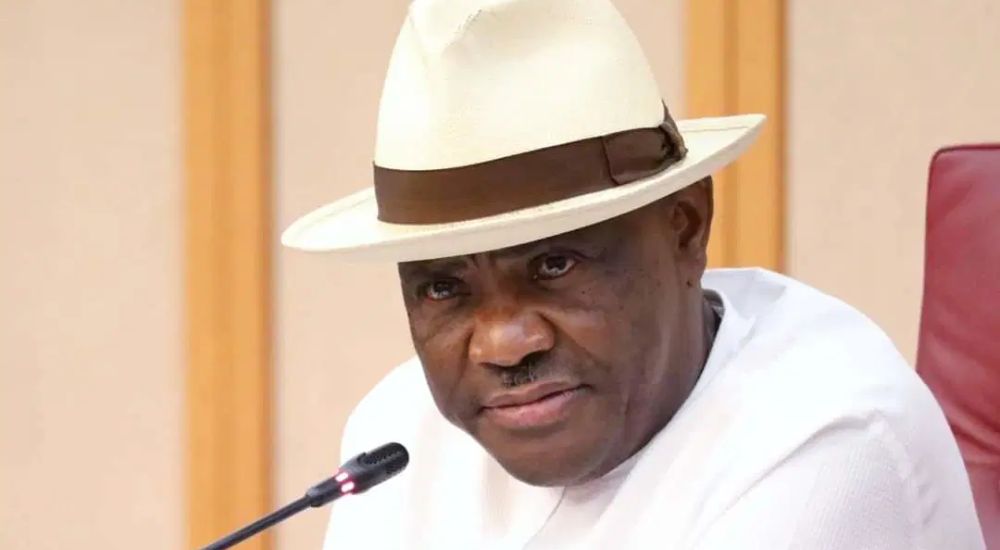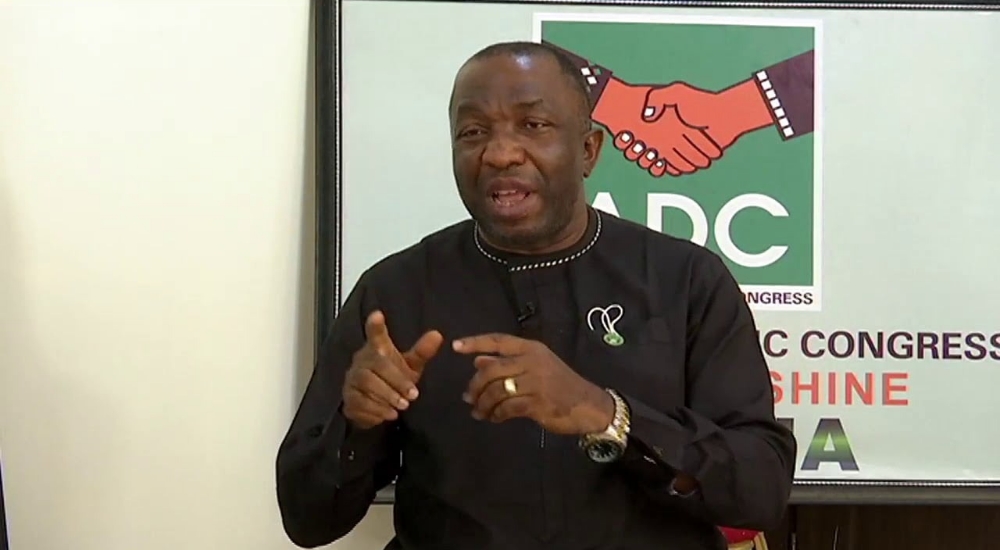Coalition: Atiku, Obi , Amaechi Meet Northern Group
Former Vice President Atiku Abubakar and the 2023 presidential candidate of the Labour Party (LP), Peter Obi, yesterday met with northern political leaders from across the 19 northern states as coalition talks intensify ahead of the 2027 presidential election.
The event, believed to have been convened by the secretariat of the emerging coalition, brought together hundreds of political figures under the banner of the National Political Consultative Group (NPCG) North, in Abuja.
Apart from Atiku and Obi, other dignitaries at the meeting included former Rivers State Governor Rotimi Amaechi; former Kogi State governor Captain Idris Wada; former Attorney-General of the Federation and Minister of Justice, Abubakar Malami (SAN), who delivered the keynote address on insecurity in the North
SPONSOR AD
Others were a former Senate president and chairman of the Peoples Democratic Party’s Board of Trustees, Senator Adolphus Wabara; the Labour Party’s 2023 vice-presidential candidate, Yusuf Datti Baba-Ahmed; a former Minister of Foreign Affairs, Ambassador Aminu Wali; a former Minister of Police Affairs, Adamu Maina Waziri, a former Secretary to the Government of the Federation, Babachir Lawal; a former All Progressives Congress’ national vice chairman (North), Salihu Lukman; Senator Ben Obi and a former Minister of Youth Development, Bolaji Abdullahi, among others.
Even though some of the people at the event said the essence of the meeting was to find solution to the teething problems afflicting northern Nigeria, curious observers believe it is about how to take over power from President Bola Ahmed Tinubu in 2027.
There are suggestions that notable personalities like General Aliyu Gusau (rtd) were behind the latest group, which has added to the number of northern groups that have sprung up in the last few months.
General Gusau has remained a power broker from the fringes since 1999; as he is rarely seen making comments in public.
Also, the calibre of people from across the divide that graced yesterday’s occasion, including the overtures extended to other stakeholders in the South East, South West and South South, added to the speculation that the group might ultimately be the rallying point for other groups ahead of 2027.
In his remarks at the event, Atiku, who has been a leading advocate for the coalition of opposition to challenge President Tinubu in the 2027 election, reflected on his time in office with former President Olusegun Obasanjo, citing their early response to the Boko Haram insurgency. He said they had issued a decisive ultimatum to service chiefs to “either put it down or resign,” an approach he claimed effectively quelled the nascent insurgency.
“This ultimatum worked. The insurgency was put down within a few weeks or months. By the time we left, it was done. I was completely stunned. But after we left, it resurfaced,” Atiku said.
He also highlighted their efforts to address police inadequacy and streamline arms procurement during the Obasanjo administration.
“I read a United Nations report that Nigeria was terribly under-policed. I went to the president and said, ‘Mr. President, Nigeria is terribly under-policed.’ He asked what we could do. I told him we had many closed police colleges across the states, and suggested reopening them and hiring more officers. And we did just that,” Atiku recounted.
On security logistics, Atiku explained that when it came to procuring arms and equipment for the police, they decided to bypass the usual contract procedures, which were cumbersome.
“Instead, we consulted the police on where they sourced their equipment, contacted the ambassadors of those countries, and secured direct supply of the necessary items in record time,” he said.
Despite these efforts, he said Nigeria still grapples with a dire police-to-population ratio.
“Today, we have 340,000 policemen for a population of 240 million. How can they police effectively? In my local government, we don’t have more than 15 policemen,” he said. “Egypt, with nearly 100 million people, has one million police officers. How can we have peace? These are challenges we must face head-on.”
On education, Atiku said the Obasanjo administration took deliberate steps to improve access in the North, citing a blueprint developed by Professor Paiko at his prompting.
“I invited all northern governors to Kaduna and handed them the blueprints for implementation. Not only that, we passed the Universal Basic Education Act, making primary and secondary education free and compulsory for every Nigerian child,” he said.
He added that the administration also introduced and collected an education tax, which was passed on to states to support education initiatives.
Atiku became emotional while recalling a visit to Daura, President Muhammadu Buhari’s hometown.
“I nearly shed tears. I landed at Katsina airport and from there to Daura, there were hordes of Almajiri children. This is the home of the former Katsina College where many of our first republic leaders studied. Today, it’s overrun by Almajirai—young boys in their twenties, thirties, and forties, from Katsina to Daura and back again,” he said.
“These are very serious issues. They’re not just about us, but about our children and grandchildren.
“As I tell my children, ‘I’ve lived my life, thank God. But this is about you and your kids. We must confront these challenges,” he said.
Earlier, Malami, in his keynote address, called for urgent collective action to rescue the North from worsening insecurity.





